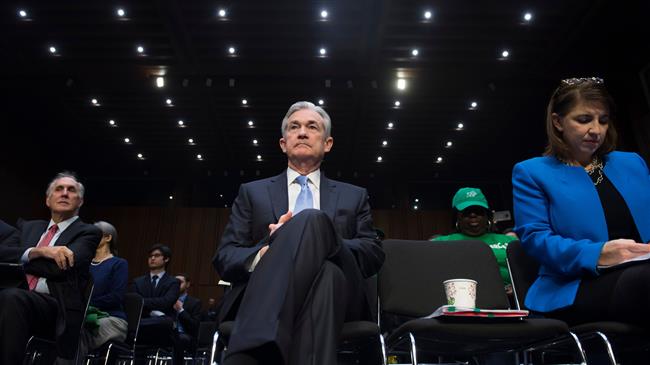Trump’s pick for US Federal Reserve enters economic equations
As Janet Yellen’s tenure as the Chair of the Federal Reserve ends, US President Donald Trump’s pick prepares to take the helm at the central banking system of the United States.
The New York billionaire who had no rosy relationship with Yellen since the days of the 2016 campaign, had opted not to re-nominate her, which made her announce in advance that she would leave at the end of her term.

Therefore, Jerome Hayden Powell, Trump’s pick who has been confirmed by the GOP-controlled Senate, is starting his job as the new “Fed Chair” on February 5.
According to law, the president must nominate someone for the position from the Board of Governors of the Federal Reserve System.
After Powell was appointed by Trump on November 2, he was confirmed by the American senators with little opposition.
The 64-year old will be sworn in as what is said to be the strongest position after the US president while the country’s economy appears to be doing well.
In his first State of the Union address on Tuesday, Trump bragged about the good economy and stock market, for which Yellen is said to deserve the most credit.
“Since the election, we have created 2.4 million jobs… Unemployment claims have hit a 45-year low,” Trump said, adding that the stock market “has smashed one record after another.”
Meanwhile, the majority of economists surveyed in recent days by The Wall Street Journal have given Yellen an “A” grade, which is considered a very high mark for any leader in Washington.
Despite that, the US president has decided to put a new Fed head in place, who Yellen described as “part of the consensus” in December 2017.
Powell is expected to follow the path the Obama-appointed Yellen took and raise interest rates three to four times in 2018.

This is while Trump is attempting to keep his 2016 campaign pledge for a $1.5 trillion infrastructure spending boost.
If the plan can actually boost the economy, it will also result in escalating the budget deficit, which could serve as a serious challenge for Powell.
According to David Wessel, the director of the Hutchins Center at the Brookings Institution, “History suggests that in his four years he will face a recession. And that’s going to be a challenge to the Fed because it probably won’t be able to rely on just cutting short-term interest rates as the Fed has done in the past.”
In his interview with NPR on Thursday, Wessel suggested that Powell will have to resort to “unconventional tools, like buying a lot of bonds, to get us out of it.”
Source: Presstv





